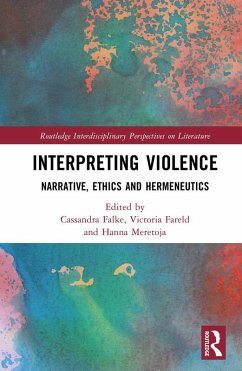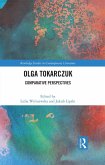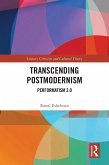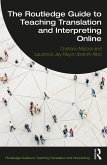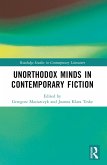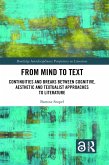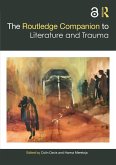Interpreting Violence (eBook, PDF)
Narrative, Ethics and Hermeneutics
Redaktion: Falke, Cassandra; Meretoja, Hanna; Fareld, Victoria
42,95 €
42,95 €
inkl. MwSt.
Sofort per Download lieferbar

21 °P sammeln
42,95 €
Als Download kaufen

42,95 €
inkl. MwSt.
Sofort per Download lieferbar

21 °P sammeln
Jetzt verschenken
Alle Infos zum eBook verschenken
42,95 €
inkl. MwSt.
Sofort per Download lieferbar
Alle Infos zum eBook verschenken

21 °P sammeln
Interpreting Violence (eBook, PDF)
Narrative, Ethics and Hermeneutics
Redaktion: Falke, Cassandra; Meretoja, Hanna; Fareld, Victoria
- Format: PDF
- Merkliste
- Auf die Merkliste
- Bewerten Bewerten
- Teilen
- Produkt teilen
- Produkterinnerung
- Produkterinnerung

Bitte loggen Sie sich zunächst in Ihr Kundenkonto ein oder registrieren Sie sich bei
bücher.de, um das eBook-Abo tolino select nutzen zu können.
Hier können Sie sich einloggen
Hier können Sie sich einloggen
Sie sind bereits eingeloggt. Klicken Sie auf 2. tolino select Abo, um fortzufahren.

Bitte loggen Sie sich zunächst in Ihr Kundenkonto ein oder registrieren Sie sich bei bücher.de, um das eBook-Abo tolino select nutzen zu können.
Interpreting Violence examines the ethics of engaging with representations of violence from a broad hermeneutic perspective. It offers multidisciplinary perspectives on the sense-making involved in interpreting violence in its various forms, from blatant physical violence to less visible forms
- Geräte: PC
- mit Kopierschutz
- eBook Hilfe
Andere Kunden interessierten sich auch für
![Olga Tokarczuk (eBook, PDF) Olga Tokarczuk (eBook, PDF)]() Olga Tokarczuk (eBook, PDF)42,95 €
Olga Tokarczuk (eBook, PDF)42,95 €![Transcending Postmodernism (eBook, PDF) Transcending Postmodernism (eBook, PDF)]() Raoul EshelmanTranscending Postmodernism (eBook, PDF)42,95 €
Raoul EshelmanTranscending Postmodernism (eBook, PDF)42,95 €![The Routledge Guide to Teaching Translation and Interpreting Online (eBook, PDF) The Routledge Guide to Teaching Translation and Interpreting Online (eBook, PDF)]() Cristiano MazzeiThe Routledge Guide to Teaching Translation and Interpreting Online (eBook, PDF)48,95 €
Cristiano MazzeiThe Routledge Guide to Teaching Translation and Interpreting Online (eBook, PDF)48,95 €![Unorthodox Minds in Contemporary Fiction (eBook, PDF) Unorthodox Minds in Contemporary Fiction (eBook, PDF)]() Unorthodox Minds in Contemporary Fiction (eBook, PDF)42,95 €
Unorthodox Minds in Contemporary Fiction (eBook, PDF)42,95 €![From Mind to Text (eBook, PDF) From Mind to Text (eBook, PDF)]() Bartosz StopelFrom Mind to Text (eBook, PDF)0,99 €
Bartosz StopelFrom Mind to Text (eBook, PDF)0,99 €![The Hidden D. H. Lawrence (eBook, PDF) The Hidden D. H. Lawrence (eBook, PDF)]() Myron TumanThe Hidden D. H. Lawrence (eBook, PDF)42,95 €
Myron TumanThe Hidden D. H. Lawrence (eBook, PDF)42,95 €![The Routledge Companion to Literature and Trauma (eBook, PDF) The Routledge Companion to Literature and Trauma (eBook, PDF)]() The Routledge Companion to Literature and Trauma (eBook, PDF)47,95 €
The Routledge Companion to Literature and Trauma (eBook, PDF)47,95 €-
-
-
Interpreting Violence examines the ethics of engaging with representations of violence from a broad hermeneutic perspective. It offers multidisciplinary perspectives on the sense-making involved in interpreting violence in its various forms, from blatant physical violence to less visible forms
Dieser Download kann aus rechtlichen Gründen nur mit Rechnungsadresse in A, B, BG, CY, CZ, D, DK, EW, E, FIN, F, GR, HR, H, IRL, I, LT, L, LR, M, NL, PL, P, R, S, SLO, SK ausgeliefert werden.
Produktdetails
- Produktdetails
- Verlag: Taylor & Francis
- Seitenzahl: 208
- Erscheinungstermin: 30. März 2023
- Englisch
- ISBN-13: 9781000840261
- Artikelnr.: 67442569
- Verlag: Taylor & Francis
- Seitenzahl: 208
- Erscheinungstermin: 30. März 2023
- Englisch
- ISBN-13: 9781000840261
- Artikelnr.: 67442569
- Herstellerkennzeichnung Die Herstellerinformationen sind derzeit nicht verfügbar.
Cassandra Falke is Professor of English Literature at UiT - The Arctic University of Norway. She is the author of three books and the editor or co-editor of three others: Intersections in Christianity and Critical Theory (ed. 2010), Literature by the Working Class: English Autobiography, 1820-1848 (2013), The Phenomenology of Love and Reading (2016), Phenomenology of the Broken Body (co-ed., 2019), Wild Romanticism (co-ed. 2020), and Global Human Rights Fiction (forthcomig). She is the President of the American Studies Association of Norway and leads the English literature section at UiT and the Interdisciplinary Phenomenology research group. Victoria Fareld is Associate Professor of Intellectual History at Stockholm University. Her research focuses mainly on political philosophy, theory of history and memory studies, with particular interests in the connections between time, ethics, memory and historical justice. Her most recent book is From Marx to Hegel and Back: Capitalism, Critique, and Utopia (co-ed, 2020). Among her recent articles and book chapters are "Time" (2022), "Framing the Polychronic Present" (2022), "Entangled Memories of Violence" (Memory Studies, 14:1, 2021), "Coming to Terms with the Present," (2019) and "History, Justice and the Time of the Imprescriptible" (2018). Hanna Meretoja is Professor of Comparative Literature and Director of SELMA: Centre for the Study of Storytelling, Experientiality and Memory at the University of Turku, nland, and Principal Investigator in the Academy of Finland research consortium "Instrumental Narratives: The Limits of Storytelling and New Story-Critical Narrative Theory" (2018-2023). Her research is mainly in the fields of narrative studies, cultural memory studies and trauma studies. Her monographs include The Ethics of Storytelling: Narrative Hermeneutics, History, and the Possible (2018) and The Narrative Turn in Fiction and Theory (2014), and she has co-edited, with Colin Davis, The Routledge Companion to Literature and Trauma (2020) and Storytelling and Ethics: Literature, Visual Arts and the Power of Narrative (2018), and the special issues "Cultural Memorial Forms" (Memory Studies, 2021, with Eneken Laanes) and "Critical Approaches to the Storytelling Boom" (Poetics Today, 2022, with Maria Mäkelä).
List of contributors
Interpreting Violence, Violent Interpretations: Introduction
Cassandra Falke, Victoria Fareld and Hanna Meretoja
Part I. Representing Violence, Violent Representations
1. Witnessing Violence in Literature and Humanitarian Discourse
Cassandra Falke (UiT - The Arctic University of Norway)
2. Memory, Encore! Popular Music, Power and Postwar Memory
Avril Tynan (Turku Institute for Advanced Studies)
3. Rethinking Planetarity in the Specter of (Neo)colonial Violence: The
Strangler Vine and 'Thugs' in America
Amrita Ghosh (Linneaus University)
4. Variants and Consequences of Violence in Iris Murdoch's The Sacred
and Profane Love Machine
Jakob Lothe (University of Oslo)
5. Violent Appetites: Distaste and the Aesthetics of Violence
Tero Eljas Vanhanen (University of Helsinki)
Part II. Understanding the Violence of Perpetrators
6. A Manifesto on the Hermeneutics of Violence
Brian Schiff and Michael Justice (American University of Paris)
7. Narrative Mastery over Violence in Perpetrator-Authored Documents:
Interpreting Closure in The Stroop Report
Erin McGlothlin (Washington University)
8. Space of Murder, Space of Freedom: The Forest as a Posttraumatic
Landscape in Holocaust Narratives
Helena Duffy (Turku Institute for Advanced Studies)
Part III. Articulating Inherent Violence
9. Physical, Emotional and Discursive Violence: The Problem of Narrative
in Karl Ove Knausgård's My Struggle
Hanna Meretoja (University of Turku)
10. Reading Violence, Violent Reading: Levinas and Hermeneutics
Colin Davis (Royal Holloway, University of London)
11. Style and the Violence of Passivity in Samuel Beckett's How It Is.
Amanda Dennis (American University of Paris)
12. Vulnerability, Violence and Nonviolence
Victoria Fareld (Stockholm University)
Index
Interpreting Violence, Violent Interpretations: Introduction
Cassandra Falke, Victoria Fareld and Hanna Meretoja
Part I. Representing Violence, Violent Representations
1. Witnessing Violence in Literature and Humanitarian Discourse
Cassandra Falke (UiT - The Arctic University of Norway)
2. Memory, Encore! Popular Music, Power and Postwar Memory
Avril Tynan (Turku Institute for Advanced Studies)
3. Rethinking Planetarity in the Specter of (Neo)colonial Violence: The
Strangler Vine and 'Thugs' in America
Amrita Ghosh (Linneaus University)
4. Variants and Consequences of Violence in Iris Murdoch's The Sacred
and Profane Love Machine
Jakob Lothe (University of Oslo)
5. Violent Appetites: Distaste and the Aesthetics of Violence
Tero Eljas Vanhanen (University of Helsinki)
Part II. Understanding the Violence of Perpetrators
6. A Manifesto on the Hermeneutics of Violence
Brian Schiff and Michael Justice (American University of Paris)
7. Narrative Mastery over Violence in Perpetrator-Authored Documents:
Interpreting Closure in The Stroop Report
Erin McGlothlin (Washington University)
8. Space of Murder, Space of Freedom: The Forest as a Posttraumatic
Landscape in Holocaust Narratives
Helena Duffy (Turku Institute for Advanced Studies)
Part III. Articulating Inherent Violence
9. Physical, Emotional and Discursive Violence: The Problem of Narrative
in Karl Ove Knausgård's My Struggle
Hanna Meretoja (University of Turku)
10. Reading Violence, Violent Reading: Levinas and Hermeneutics
Colin Davis (Royal Holloway, University of London)
11. Style and the Violence of Passivity in Samuel Beckett's How It Is.
Amanda Dennis (American University of Paris)
12. Vulnerability, Violence and Nonviolence
Victoria Fareld (Stockholm University)
Index
List of contributors
Interpreting Violence, Violent Interpretations: Introduction
Cassandra Falke, Victoria Fareld and Hanna Meretoja
Part I. Representing Violence, Violent Representations
1. Witnessing Violence in Literature and Humanitarian Discourse
Cassandra Falke (UiT - The Arctic University of Norway)
2. Memory, Encore! Popular Music, Power and Postwar Memory
Avril Tynan (Turku Institute for Advanced Studies)
3. Rethinking Planetarity in the Specter of (Neo)colonial Violence: The
Strangler Vine and 'Thugs' in America
Amrita Ghosh (Linneaus University)
4. Variants and Consequences of Violence in Iris Murdoch's The Sacred
and Profane Love Machine
Jakob Lothe (University of Oslo)
5. Violent Appetites: Distaste and the Aesthetics of Violence
Tero Eljas Vanhanen (University of Helsinki)
Part II. Understanding the Violence of Perpetrators
6. A Manifesto on the Hermeneutics of Violence
Brian Schiff and Michael Justice (American University of Paris)
7. Narrative Mastery over Violence in Perpetrator-Authored Documents:
Interpreting Closure in The Stroop Report
Erin McGlothlin (Washington University)
8. Space of Murder, Space of Freedom: The Forest as a Posttraumatic
Landscape in Holocaust Narratives
Helena Duffy (Turku Institute for Advanced Studies)
Part III. Articulating Inherent Violence
9. Physical, Emotional and Discursive Violence: The Problem of Narrative
in Karl Ove Knausgård's My Struggle
Hanna Meretoja (University of Turku)
10. Reading Violence, Violent Reading: Levinas and Hermeneutics
Colin Davis (Royal Holloway, University of London)
11. Style and the Violence of Passivity in Samuel Beckett's How It Is.
Amanda Dennis (American University of Paris)
12. Vulnerability, Violence and Nonviolence
Victoria Fareld (Stockholm University)
Index
Interpreting Violence, Violent Interpretations: Introduction
Cassandra Falke, Victoria Fareld and Hanna Meretoja
Part I. Representing Violence, Violent Representations
1. Witnessing Violence in Literature and Humanitarian Discourse
Cassandra Falke (UiT - The Arctic University of Norway)
2. Memory, Encore! Popular Music, Power and Postwar Memory
Avril Tynan (Turku Institute for Advanced Studies)
3. Rethinking Planetarity in the Specter of (Neo)colonial Violence: The
Strangler Vine and 'Thugs' in America
Amrita Ghosh (Linneaus University)
4. Variants and Consequences of Violence in Iris Murdoch's The Sacred
and Profane Love Machine
Jakob Lothe (University of Oslo)
5. Violent Appetites: Distaste and the Aesthetics of Violence
Tero Eljas Vanhanen (University of Helsinki)
Part II. Understanding the Violence of Perpetrators
6. A Manifesto on the Hermeneutics of Violence
Brian Schiff and Michael Justice (American University of Paris)
7. Narrative Mastery over Violence in Perpetrator-Authored Documents:
Interpreting Closure in The Stroop Report
Erin McGlothlin (Washington University)
8. Space of Murder, Space of Freedom: The Forest as a Posttraumatic
Landscape in Holocaust Narratives
Helena Duffy (Turku Institute for Advanced Studies)
Part III. Articulating Inherent Violence
9. Physical, Emotional and Discursive Violence: The Problem of Narrative
in Karl Ove Knausgård's My Struggle
Hanna Meretoja (University of Turku)
10. Reading Violence, Violent Reading: Levinas and Hermeneutics
Colin Davis (Royal Holloway, University of London)
11. Style and the Violence of Passivity in Samuel Beckett's How It Is.
Amanda Dennis (American University of Paris)
12. Vulnerability, Violence and Nonviolence
Victoria Fareld (Stockholm University)
Index
